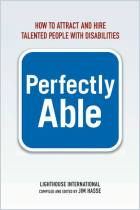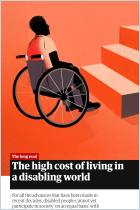Зарегистрируйтесь на getAbstract, чтобы получить доступ к этому краткому изложению.

Зарегистрируйтесь на getAbstract, чтобы получить доступ к этому краткому изложению.
Judith Heumann
Putting a Disability Lens on Tech Work
Talks at Google with Judith Heumann
Talks at Google, 2020
Что внутри?
Think disability accommodations are only for other people? Someday, they’ll be for you too.
Recommendation
People with disabilities aren’t front and center in the minds of designers, universities or companies. Who suffers, though? You may think the disability community is small – which isn’t surprising given its lack of representation in media. But an estimated 25% of people have a disability, and everyone will experience disability at some point in their lives, whether through an accident, pregnancy or old age. In this Talks at Google video, civil rights advocate Judith Heumann argues convincingly that when people fail to accommodate disability, it’s really their future selves who suffer.
Summary
About the Speaker
Judith Heumann is an internationally recognized civil rights advocate for people with disabilities. She has been appointed to distinguished posts in the Clinton and Obama administrations, including Special Advisor for International Disability Rights at the US Department of State from 2009-2017. She also served as the World Bank’s first Advisor on Disability and Development.






















Comment on this summary